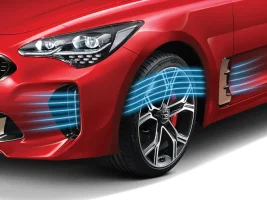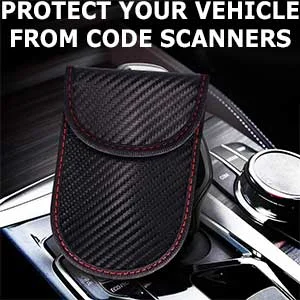While this might contribute, I don't think it can be the primary cause. How many people have reported brake vibration, and how many of those are regularly using smart cruise on long downhills?
The fact that it happens to US cars which are known to use a softer/quieter pad material, and that switching to other pads seems to resolve it, makes me think it's primarily the compound (probably combined with the weight & performance nature of the car --> probably more heat than these pads might see in other uses).
At ~25k miles I've noticed the occasional mild pulsing, but one or two moderate brake applications (maybe 6/10, nowhere near threshold) from cruising speed cleans them right up, so I'm sure it's tied to driving style.
For the 1st paragraph: I think it might be a *lot* of people who use smart cruise to just set the car at a given speed and let it run--especially when not driving spiritedly. But that being said I don't think it's necessarily *the* major cause. Anecdotally (not tested control vs variable), we have a 16% downgrade hill near where I live with a 25mph limit that I don't take too often, but think that it too might cause issues. I'll look into it.
The fix is as you say, of course. Re-bedding the brakes scrapes off the pad deposits because of the additional pressure, and not causing the rotors to come to a complete stop means that additional material is not transferred unevenly. I think that if the brakes are ridden and lightly applied, there's not enough pressure from the pads to cause that uniform material transfer layer--especially if the pads and rotors get hot from long periods of friction contact.
I never intended that this was *the* cause, but a major contributing factor; as well as a possible fix if you (royal you) do brake overly gently for long periods of time or rely on the smart cruise control to maintain speed: Don't brake too lightly over long distances and don't rely on smart cruise control to maintain your speed while it's braking. Instead downshift and apply the brakes periodically (which I think most of us were taught to do before cruise control--especially cruise control which also slows the car down, became a thing).
Guess that can be a thing in a perfect world, but most times I nor morst people get the opportunity for perfect braking situations especially with long commutes, or even small ones for that matter. The air theory is def a hypothesis as I have no way to say it's 100% the issue, although it's the best I can come up with especially with how easily the dust accumulates even with low dust brake solutions. Air flow would make more sense though if it's a cold temp issue too though as the dust would still collect

I do use the cruise at times as well so you may have something there too, but I can tell you that even with using cruise with the new rotors the problem has not re-surfaced thank the car gods. So hopefully my trial and error can help end the pain I had to go through to get the win with little effort for people just starting out with this frustrating situation.
I think the Stinger has decent (not perfect) airflow through the front wheels. The brakes are much better than some of my other cars but I do think that the shuddering is the result of some design flaws.
Having slotted/dimpled/drilled rotors would provide an interface where the hot brake pad surface which lays down the deposits becomes scraped off should help the issue, but I think the trade-off is that your pad life suffers. More airflow might help in keeping stuff cool but I think that if the brakes are engaged lightly over a long period of time it exacerbates the issue--especially with stock rotors and pads. Aftermarket pads could help (my Z26 pads are much more resilient that the stock pads, but not perfect), and I think different rotors can mitigate the issue (neither hurt at all

), but the core I think is not braking lightly for long periods of time like the car was programmed to do.
All of this is of course observation and conjecture at this point. The only think I've experienced is that on a long highway descent, letting the car coast, downshifting, and braking in firmer pulses doesn't accumulate the deposits as readily as letting smart cruise maintain speed. I'd still have the flesh out slower speed descents, etc.




